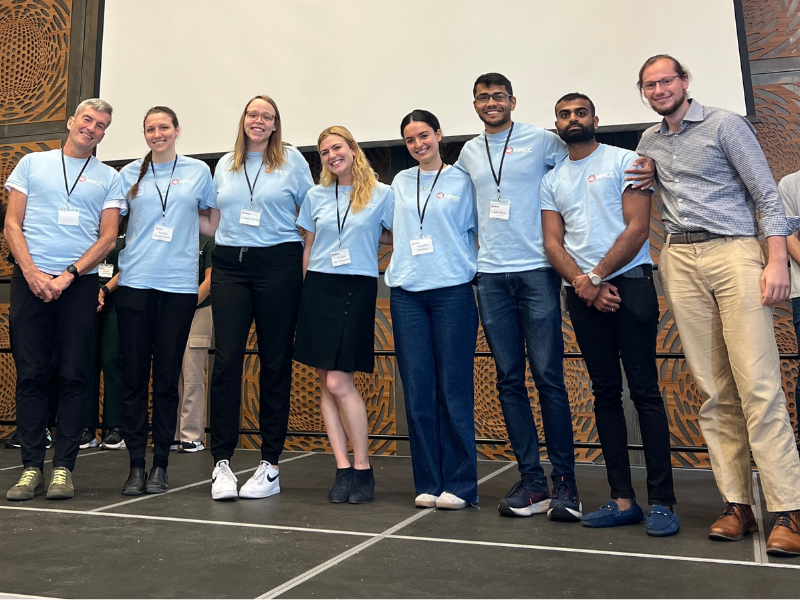
New case-based textbook explores complex pediatric colorectal care
25 February 2026
Rise in respiratory infections and measles outbreak: important infection prevention measures at the Montreal Children’s Hospital.
Read moreWelcome to the Montreal Children's Hospital

4 October 2024
Under the supervision of attending physicians from the McGill University Health Centre and the Shriners Hospitals for Children – Canada, medical students and residents from McGill University recently gathered for a competition to generate solutions to emergency medicine problems.
The McGill Healthcare-Management Case Competition (MHCC), an innovative educational modality intersecting case competitions with healthcare operations management, held its second edition on September 18, 2024, at the Ballroom – University Centre, at McGill University.
MHCC brought together a total of 44 medical students and 37 residents to participate in the competition. This year’s competition challenged nine teams, composed of emergency medicine residents and attending physicians, as well as medical students to develop innovative and pragmatic solutions to one or both of the following problems:
Before the event, teams had access to a comprehensive case package and the opportunity to consult with mentors, allowing them to start gathering data and formulating their solutions. On competition day, teams were given a little more than two hours to collaborate, find solutions and prepare their PowerPoint presentations. Each team then had five minutes to present their ideas, followed by a three-minute questions and answers session with the judges.
The judging panel comprised Dr. Lucie Opatrny, Dr. Adrian Dancea, Dr. Judy Morris and Dr. Arvind Joshi. After deliberation, the winners were announced:
The winning team’s presentation introduced the ISAR (Identification of Seniors At Risk) screening tool, developed at St. Mary’s Hospital Centre, as a “seventh vital sign” to check, the goal being to address ED access block, particularly for seniors. The tool consists of six questions identifying older patients at risk of adverse outcomes, helping to determine if they should be admitted or discharged.
ISAR helps in reducing ED length of stay and following visits while optimizing consults with social workers or occupational therapists. Despite limitations, such as increased consults and potential readmission, ISAR has been validated and adopted by major institutions like Johns Hopkins Hospital and Mount Sinai Hospital to improve care efficiency and reduce ED wait times.
MHCC 2024 successfully fostered collaboration, critical thinking and innovative problem-solving among participants, solidifying its place as a significant platform for advancing healthcare operations management education at McGill University.
“As we move forward, we aim to expand MHCC’s impact, drawing in more participants from various medical and healthcare specialties — ranging from nursing to physiotherapy to social work — ensuring that our discussions and solutions are inclusive and interdisciplinary. We also aim to establish partnerships to help implement solutions from MHCC,” says Saad Razzaq, Chair of MHCC.
The program was organized by 10 medical students of diverse educational backgrounds, across various levels of their training: Saad Razzaq, Arielle Grossman, Juliette Begin, Madhurane Muthukumaraswany, Khadija Brouillette, Fiona Howse, Lucy Pu, Sébastien Lamarre-Tellier, Laurence Robert and Lauren Perlman. They were supervised by five attending physicians with expertise in emergency medicine and/or healthcare operations management: Dr. Robert Primavesi, Dr. Tanya Di Genova, Dr. Laurie Plotnick, Dr. Anali Maneshi and Dr. Bernard Unger, and supported by an Advisory Committee, featuring Dr. Leslie Breitner and Dr. Khashayar Rafatzand, who provided essential input on healthcare management aspects and support leading up to the event.
The event was sponsored by MD Financial Management, Scotiabank, Desjardins and funded by the Institute of Health Sciences Education grant.